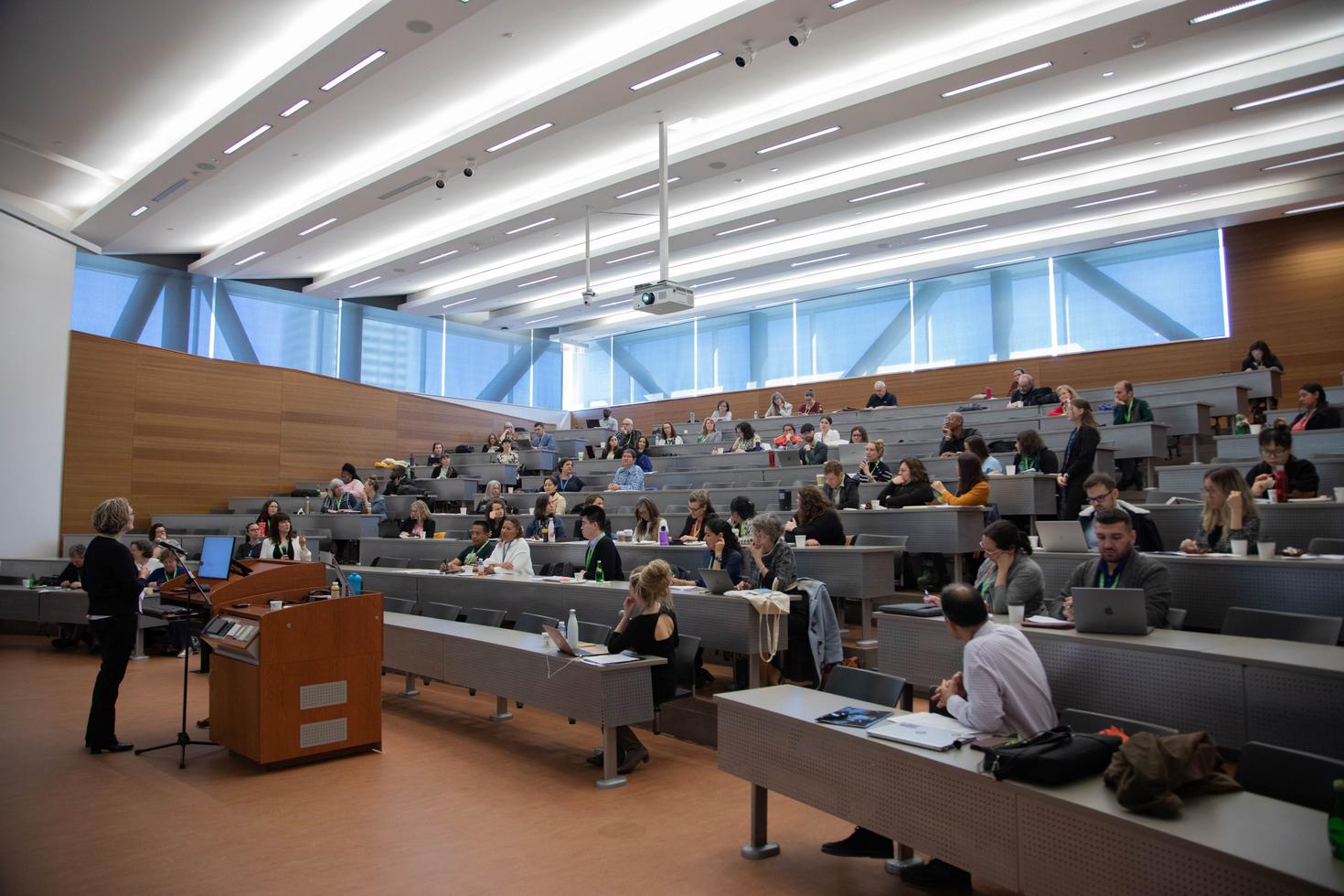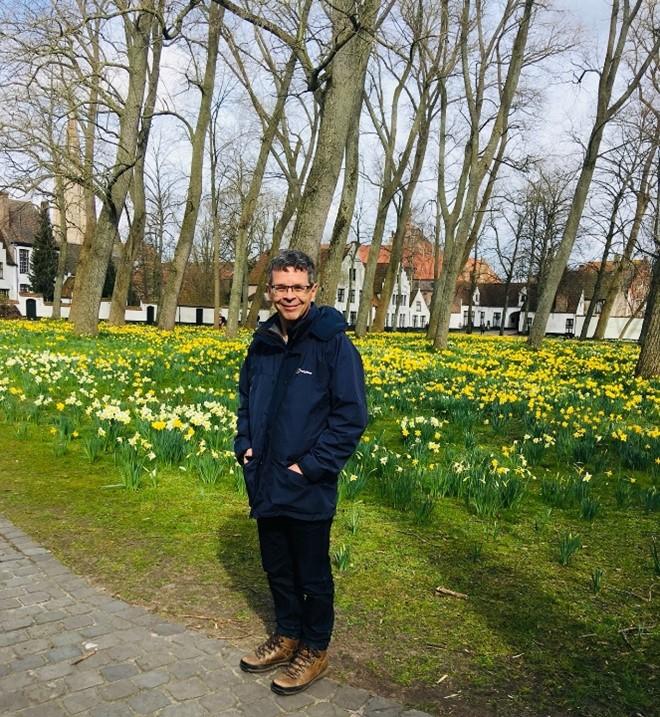
CCERBAL Research Forums
CCERBAL research forum mailing list
Past research forums

Pre-service language teachers as creative multilinguals: Arts-based approaches for professional development
The Canadian Centre for Studies and Research on Bilingualism and Language Planning (CCERBAL) and the Education and Languages Research Group of the Fac…
2023-2024

Bilingualism and Autism: Bridging the Gap between Research and Beliefs
The Canadian Centre for Studies and Research on Bilingualism and Language Planning (CCERBAL) warmly invites you to its next research forum titled Bili…

“Not another curriculum initiative!” Justifications and challenges concerning the embedding of academic literacies in university programme curricula
The Canadian Centre for Studies and Research on Bilingualism and Language Planning (CCERBAL) warmly invites you to its next research forum titled “Not…

Langue(s), Éducation et Pluralisme : Quelques réflexions d’une praticienne-chercheure (in French with bilingual Q&A)
The Canadian Centre for Studies and Research on Bilingualism and Language Planning (CCERBAL) is hosting a research forum, Langue(s), Éducation et Plur…

The use of coaching for linguistic security
Linguistic insecurity (LI) limits the effective use of French and English as official languages in Canadian federal institutions. As LI is often assoc…

Does input manipulation lead to acceleration effects in second language English instruction?
The Canadian Centre for Studies and Research on Bilingualism and Language Planning (CCERBAL) is hosting a research forum, Does input manipulation lead…

CCERBAL Research Forum | Conscience métalinguistique et Afrique francophone: quelques enquêtes en cours
The Canadian Centre for Studies and Research on Bilingualism and Language Planning (CCERBAL) is hosting a research forum, Conscience métalinguistique …
2022–2023

CCERBAL research forum | Friday, January 20
Assessment of the language repertoires of students in German upper secondary education
…

CBC/Radio Canada Mauril app: Bringing art and enjoyment to official language learning
The Canadian Centre for Studies and Research on Bilingualism and Language Planning (CCERBAL) warmly invites you to its next research forum about the M…

Positive Psychology Can Help Overcome the Pernicious Native Speaker Ideology
Speaker: Jean-Marc Dewaele, PhD (Birkbeck College, University of London)AbstractThe world of applied linguistics and the profession of foreign languag…
2021-2022

Supporting inclusion through innovation: Faculty perceptions of a content and language integrated model of support in a Canadian, anglophone university
The Canadian Centre for Studies and Research on Bilingualism and Language Planning (CCERBAL) warmly invites you to its research forum titled Supportin…

Unpacking Validation Approaches for Applied Linguistics: Current Challenges and Potential Solutions to Enhance Accessibility and Uptake
The Canadian Centre for Studies and Research on Bilingualism and Language Planning (CCERBAL) warmly invites you to its next research forum about Unpac…

The Racialized Somatic Norm in the ELT Workplace
The Canadian Centre for Studies and Research on Bilingualism and Language Planning (CCERBAL) warmly invites you to its next research forum titled The …
2020-2021

Linguistic insecurity: A complicated reality
The Canadian Centre for Studies and Research on Bilingualism and Language Planning (CCERBAL) warmly invites you to its next research forum about Lingu…

Language Attitudes, Intergenerational Language Transmission, and Family Language Policy in Quebec
The Canadian Centre for Studies and Research on Bilingualism and Language Planning (CCERBAL) warmly invites you to its research forum titled Language …

The need for evidence-based strategies to navigate the changed linguistic landscapes in education
The Canadian Centre for Studies and Research on Bilingualism and Language Planning (CCERBAL) warmly invites you to its next research forum about The n…
2019-2020

CCERBAL Research Forum: March 3 2020
The Canadian Centre for Studies and Research on Bilingualism and Language Planning (CCERBAL) warmly invites you to its next research forum about (((ti…

Les « Approches plurielles des langues et des cultures » : un concept et des outils pour la prise en compte du plurilinguisme de chacun dans les apprentissages.
The Canadian Centre for Studies and Research on Bilingualism and Language Planning (CCERBAL) warmly invites you to its next research forum about "Les …

Apprentissage en milieu communautaire (AEC) à l’université
The Canadian Centre for Studies and Research on Bilingualism and Language Planning (CCERBAL) warmly invites you to its next research forum about Appre…

Translanguaging and Trans-semiotizing in Content-based Education
The Canadian Centre for Studies and Research on Bilingualism and Language Planning (CCERBAL) warmly invites you to its next research forum about Trans…

Corpus approaches to issues in second language acquisition
The Canadian Centre for Studies and Research on Bilingualism and Language Planning (CCERBAL) warmly invites you to its next research forum about Corpu…
2018-2019

Source use in academic writing: Challenges for students and assessors
The Canadian Centre for Studies and Research on Bilingualism and Language Planning (CCERBAL) warmly invites you to its next research forum about The S…

The Kurdish Language: From Linguicide to Standardization
The Canadian Centre for Studies and Research on Bilingualism and Language Planning (CCERBAL) warmly invites you to its next research forum about The K…

How to examine anxiety, perceived competence and willingness to communicate in real time and what doing so means
The Canadian Centre for Studies and Research on Bilingualism and Language Planning (CCERBAL) warmly invites you to its next research forum about How t…

La formation continue des enseignants de langues aujourd’hui : enjeux, impacts et outils pour impliquer les enseignants
The Canadian Centre for Studies and Research on Bilingualism and Language Planning (CCERBAL) warmly invites you to its next research forum about "La f…

Automated Corrective Feedback in the Context of ASR-supported Pronunciation Training: how effective can it be?
The Canadian Centre for Studies and Research on Bilingualism and Language Planning (CCERBAL) warmly invites you to its next research forum about Autom…
2017-2018

Noticing oral corrective feedback in the second language classroom: Evidence and applications
The Canadian Centre for Studies and Research on Bilingualism and Language Planning (CCERBAL) warmly invites you to its next research forum about Notic…

The role of socio-affective variables in CLIL in French-speaking Belgium
The Canadian Centre for Studies and Research on Bilingualism and Language Planning (CCERBAL) warmly invites you to its next research forum about The r…

Compendium of Language Management in Canada
The Canadian Centre for Studies and Research on Bilingualism and Language Planning (CCERBAL) warmly invites you to its next research forum about Compe…

The next level: Normalizing a culture of inclusive linguistic duality in the Federal Public Service workplace
The Canadian Centre for Studies and Research on Bilingualism and Language Planning (CCERBAL) warmly invites you to its next research forum about The n…

Enseigner à rédiger en français (langue seconde) : quelles pratiques de classe ?
The Canadian Centre for Studies and Research on Bilingualism and Language Planning (CCERBAL) warmly invites you to its next research forum about Ensei…

Tracking developmental patterns in SLA: boosting learner corpus research by delving into additional data types
The Canadian Centre for Studies and Research on Bilingualism and Language Planning (CCERBAL) warmly invites you to its next research forum about Track…

L’utilisation des stratégies de créacollage numériques : Une étude auprès des étudiants universitaires
The Canadian Centre for Studies and Research on Bilingualism and Language Planning (CCERBAL) warmly invites you to its next research forum about L’uti…

Linguistic Landscape in Beginning Language Learning: A Look at the Language in Images of Québec in French Textbooks in the US
The Canadian Centre for Studies and Research on Bilingualism and Language Planning (CCERBAL) warmly invites you to its next research forum about Lingu…

Bilinguals with developmental disabilities with a particular focus on Down syndrome
The Canadian Centre for Studies and Research on Bilingualism and Language Planning (CCERBAL) warmly invites you to its next research forum about Bilin…

The linguascape of English social media and the Fukushima nuclear disaster: The sociolinguistic and educational implications in the context of Japanese EFL university students
The Canadian Centre for Studies and Research on Bilingualism and Language Planning (CCERBAL) warmly invites you to its next research forum about The l…
2016-2017

The potential for learning vocabulary through watching L2 television
The Canadian Centre for Studies and Research on Bilingualism and Language Planning (CCERBAL) warmly invites you to its next research forum about The p…

Reflections on childhood bilingualism and multilingualism
The Canadian Centre for Studies and Research on Bilingualism and Language Planning (CCERBAL) warmly invites you to its next research forum about Refle…

D'une perspective actionnelle à une approche socio-interactionnelle et des tâches ancrées dans la vie réelle en didactique des langues. Dépasser les limites des situations de classe
The Canadian Centre for Studies and Research on Bilingualism and Language Planning (CCERBAL) warmly invites you to its next research forum about D'une…
On the Potential of Teacher Education in CALL: Thoughts and Becomings
The Canadian Centre for Studies and Research on Bilingualism and Language Planning (CCERBAL) warmly invites you to its next research forum about On th…
MyAnnotator: An Error Annotation Tool for Language Teachers
The Canadian Centre for Studies and Research on Bilingualism and Language Planning (CCERBAL) warmly invites you to its next research forum about MyAnn…
Immersion française à l’université : Politiques et pédagogies
The Canadian Centre for Studies and Research on Bilingualism and Language Planning (CCERBAL) warmly invites you to its next research forum about Immer…
2015-2016
A Political-Economy Approach to Language Rights
The Canadian Centre for Studies and Research on Bilingualism and Language Planning (CCERBAL) warmly invites you to its next research forum about A Pol…
Teachers’ Grading Decision-Making: Validating the Interface between Teaching and Assessment
The Canadian Centre for Studies and Research on Bilingualism and Language Planning (CCERBAL) warmly invites you to its next research forum about Teach…
Les langues familiales de la migration comme ressource pour la classe
The Canadian Centre for Studies and Research on Bilingualism and Language Planning (CCERBAL) warmly invites you to its next research forum about Les l…
Anxiety and Perceived English and French Language Competence of Education Students
The Canadian Centre for Studies and Research on Bilingualism and Language Planning (CCERBAL) warmly invites you to its next research forum about Anxie…

Validation Research in Language Testing at OLBI
The Canadian Centre for Studies and Research on Bilingualism and Language Planning (CCERBAL) warmly invites you to its next research forum about Valid…

Usages numériques des migrants pour soutenir leur intégration linguistique : un aperçu de la situation
The Canadian Centre for Studies and Research on Bilingualism and Language Planning (CCERBAL) warmly invites you to its next research forum about Usage…

The Dynamics of Self-Determined Motivation over the Language Course
The Canadian Centre for Studies and Research on Bilingualism and Language Planning (CCERBAL) warmly invites you to its next research forum about The D…